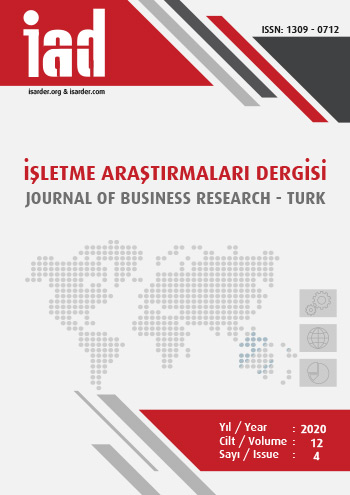The Effect of Agile Manufacturing on Logistics Performance: The Case of Textile Sector
The Effect of Agile Manufacturing on Logistics Performance: The Case of Textile Sector
Author(s): Emel Gelmez, Muammer ZerenlerSubject(s): Business Economy / Management, Marketing / Advertising, Transport / Logistics
Published by: Orhan Sağçolak
Keywords: Agility; Agile Manufacturing; Logistics Performance;
Summary/Abstract: Purpose – It has become a requirement for businesses to follow the changes occurring both in its inside and outside environment in a competitive environment where there is a transformation from craft production mode to lean manufacturing, from lean manufacturing to agile manufacturing. For this reason, businesses must have a “proactive” structure. As a matter of fact, businesses that carry out their activities by adapting to these changes and successfully manage or execute business-environment integration in this process will be able to be successful in the current competition. In this process, particular factors such as customer satisfaction, timely delivery, and delivery speed can be considered as an important factor of performance. For this reason, businesses are required to fulfill the demands from themselves within the framework of the “agile business” approach. In this context, the main purpose of this study is to determine the effect of agile manufacturing on logistics performance. Design/methodology/approach – In the study, firstly, the conceptual framework was created by literature review. Subsequently, in order to determine the causal relationship between the agile manufacturing and logistcs performance, a survey was conducted on businesses operating in the textile and its derivative industries. Statistical Package for Social Science (SPSS) 23.0 was used to analyze the data obtained from the survey. Findings – As a result of the analysis; it has been concluded that agile manufacturing practices and logistics performances of enterprises are found above average. First of all, correlation analysis was performed and the relationship between the agile manufacturing and logistcs performance was determined a positive and moderate (0.553) relationship was found between those variables. As a result of the analysis, agile manufacturing has been found to have a positive effect (0.295) on logistics performance. Discussion – It has been determined that logistics performance can be explained by agile manufacturing. The result of this research is not generalizable. But, it is considered that the study will contribute to the literature as the studies on this subject are limited. When evaluated, it can be suggested that future studies may contribute to the literature performing the study on different sectors or on the same sector but on the country level.
Journal: İşletme Araştırmaları Dergisi
- Issue Year: 12/2020
- Issue No: 4
- Page Range: 4142-4150
- Page Count: 9
- Language: English

